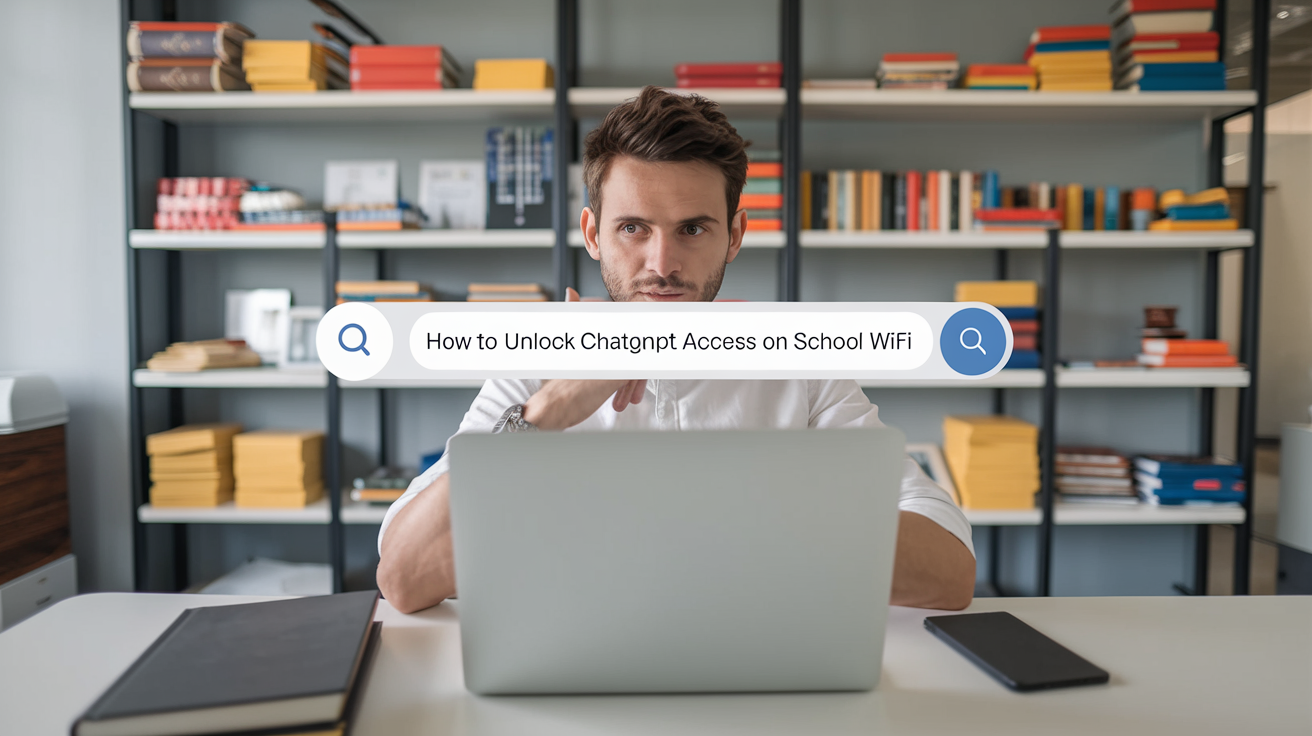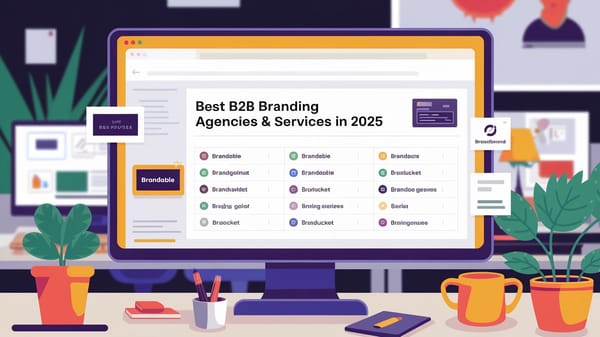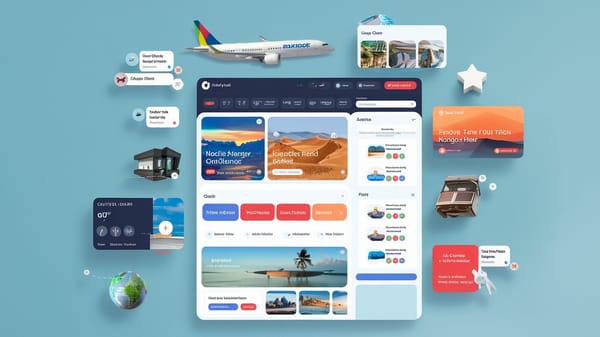How to Unlock ChatGPT Access on School WiFi?

In today's digital age, educational institutions are increasingly integrating technology into their learning environments. Tools like ChatGPT have become invaluable resources for students, offering assistance with assignments, research, and understanding complex subjects. However, many schools have implemented restrictions on accessing such AI tools through their WiFi networks, primarily due to concerns about misuse, such as plagiarism and cheating during exams. This report aims to explore the methods and ethical considerations involved in unblocking ChatGPT on school WiFi, ensuring that students can leverage this technology responsibly for educational purposes.
Schools often employ network restrictions to maintain a focused learning environment, minimize distractions, and protect bandwidth. These restrictions are typically enforced through firewalls and content filters, which block access to certain websites and applications. While these measures are intended to promote academic integrity and safety, they can inadvertently hinder access to legitimate educational resources like ChatGPT.
One of the most effective ways to bypass these restrictions is by using a Virtual Private Network (VPN), which encrypts internet traffic and masks the user's IP address, making it appear as though the traffic is originating from a different location. This method not only allows access to blocked sites but also enhances privacy and security. However, it's important to note that some schools have policies against the use of VPNs, and students should be aware of their institution's rules before proceeding.
Another approach is to use a mobile hotspot, which involves connecting to the internet via a smartphone's data plan instead of the school's WiFi. This method bypasses the school's network entirely, allowing unrestricted access to online resources. However, students should be mindful of data usage limits and potential costs associated with this option.
While these technical solutions can provide access to ChatGPT, it's crucial for students to use them ethically and in accordance with their school's acceptable use policies. The goal should always be to enhance learning and understanding, rather than circumventing rules for dishonest purposes. By understanding both the technical and ethical aspects of unblocking ChatGPT, students can make informed decisions that align with their educational goals and institutional guidelines.
Table of Contents
- Understanding School Wi-Fi Restrictions
- Purpose of School Wi-Fi Restrictions
- Common Methods of Restriction
- Ethical and Legal Considerations
- Impact on Student Learning
- Alternatives to Bypassing Restrictions
- Methods to Bypass School Wi-Fi Restrictions
- Using Mobile Data or Personal Hotspots
- Proxy Servers and Web-Based Proxies
- Tor Browser
- Changing DNS Settings
- Ethical and Legal Considerations
- Ethical Considerations and School Policies
- Privacy and Security Concerns
- Academic Integrity
- Legal Implications
- Equitable Access to Technology
- Ethical Use of Technology
Understanding School Wi-Fi Restrictions
Purpose of School Wi-Fi Restrictions
School Wi-Fi restrictions are implemented to create a safe and focused learning environment. These restrictions are designed to prevent access to non-educational or inappropriate content, ensuring that students remain focused on their studies. Schools typically use content filtering and firewall settings to enforce these restrictions. Content filtering involves analyzing website URLs, keywords, and categories to determine what should be blocked, while firewalls act as a barrier between the school's network and the internet, controlling the flow of traffic and enforcing security policies.
Common Methods of Restriction
Schools employ several methods to restrict internet access. These include:
- Content Filtering: This method involves blocking access to websites based on their content. Schools use software that scans URLs and web content for specific keywords or categories deemed inappropriate or non-educational. This ensures that students cannot access sites that might distract them from their studies or expose them to harmful content.
- Firewalls: Firewalls are used to control the flow of data between the school's network and the internet. They can block specific types of traffic, such as peer-to-peer file sharing, which is often used to download large files that can congest the network.
- Bandwidth Management: Schools often implement bandwidth management tools to prioritize educational activities over non-essential internet use. This ensures that critical educational resources are always accessible, even during peak usage times.
You can also visit Oncely.com to find more Top Trending AI Tools. Oncely partners with software developers and companies to present exclusive deals on their products. One unique aspect of Oncely is its “Lifetime Access” feature, where customers can purchase a product once and gain ongoing access to it without any recurring fees. Oncely also provides a 60-day money-back guarantee on most purchases, allowing customers to try out the products and services risk-free.
Oncely is hunting for the most fantastic AI & Software lifetime deals like the ones below or their alternatives:

Ethical and Legal Considerations
Schools have ethical and legal obligations to ensure that their internet policies protect students while also providing access to necessary educational resources. The Children's Internet Protection Act (CIPA) requires schools receiving federal funding to implement internet safety policies that block or filter access to inappropriate content. These policies are not only about compliance but also about fostering a safe digital environment for students.
Moreover, schools must balance these restrictions with the need to provide equitable access to educational resources. The digital divide remains a significant issue, with many students lacking reliable internet access at home. Schools must ensure that their policies do not exacerbate this divide by unnecessarily restricting access to educational content.
Impact on Student Learning
Effective Wi-Fi policies can significantly impact student learning by providing secure and reliable access to online resources. When schools implement well-crafted policies, they create an environment conducive to learning, where students can access digital resources without compromising their safety or privacy.
However, overly restrictive policies can hinder students' ability to conduct research or access necessary educational materials. It is crucial for schools to regularly review and update their policies to ensure they meet the evolving needs of students and the educational landscape.
Alternatives to Bypassing Restrictions
Instead of attempting to bypass school Wi-Fi restrictions, students should consider alternative approaches to accessing necessary resources. Engaging in open dialogue with teachers and administrators can often lead to solutions that address students' needs without compromising network security. Schools may provide access to specific resources upon request or adjust their policies to better accommodate educational needs.
Additionally, schools can educate students about responsible internet use and the importance of adhering to established policies. By fostering a culture of digital responsibility, schools can empower students to make informed decisions about their internet use.
In conclusion, understanding school Wi-Fi restrictions involves recognizing the balance between providing access to educational resources and maintaining a secure, focused learning environment. By adhering to ethical and legal standards, schools can implement effective policies that support student learning while protecting their digital safety.
Methods to Bypass School Wi-Fi Restrictions
Using Mobile Data or Personal Hotspots
One of the simplest methods to bypass school Wi-Fi restrictions is to use mobile data or personal hotspots. This approach involves disconnecting from the school's Wi-Fi network and using a cellular data connection to access the internet. This method is effective because it circumvents the school's network entirely, thus avoiding any restrictions or filters that may be in place. However, it is important to consider the potential costs associated with mobile data usage, as excessive use can quickly deplete data allowances and incur additional charges.
Additionally, some schools may have policies that prohibit the use of personal hotspots on campus. It is crucial to review the school's rules and regulations to ensure compliance and avoid potential disciplinary actions. Using mobile data should be reserved for legitimate educational purposes, and students should be mindful of the ethical implications of bypassing school restrictions.
Proxy Servers and Web-Based Proxies
Proxy servers and web-based proxies are popular tools for bypassing network restrictions. These services act as intermediaries between the user's device and the internet, allowing users to access blocked websites by routing their requests through a different server. By doing so, the user's IP address is masked, and the school's network filters are bypassed.
When using proxy servers, it is essential to choose reputable and secure options to protect privacy and data security. Some proxies may log user activity or inject ads, which can compromise security. Therefore, it is advisable to research and select trusted proxy services.
Tor Browser
The Tor Browser is another tool that can be used to bypass school Wi-Fi restrictions. It is designed to protect user privacy by routing internet traffic through a network of volunteer-operated servers, effectively anonymizing the user's online activity. This makes it difficult for network filters to block access to specific websites.
While the Tor Browser is a powerful tool for maintaining privacy, it is important to use it responsibly. Accessing illegal or inappropriate content can have serious legal consequences, and students should adhere to school policies and use the browser for legitimate educational purposes only.
Changing DNS Settings
Another method to bypass school Wi-Fi restrictions is to change the DNS (Domain Name System) settings on a device. Schools often use DNS filtering to block access to certain websites. By switching to a public DNS server, such as Google DNS or OpenDNS, users can potentially bypass these filters and access blocked content.
To change DNS settings, users can go to their device's network settings and manually enter the IP addresses of the desired public DNS servers. This method is relatively simple and can be effective in bypassing basic DNS-based restrictions. However, it is important to note that more advanced filtering techniques may still block access to certain websites.
Ethical and Legal Considerations
While there are various methods to bypass school Wi-Fi restrictions, it is crucial to consider the ethical and legal implications of doing so. Schools implement these restrictions to create a safe and focused learning environment, and circumventing them without authorization can violate school policies and local laws. Engaging in such activities can result in disciplinary actions, loss of internet privileges, or even legal consequences.
Students should weigh the benefits of accessing blocked content against the potential risks and consequences. It is advisable to use these methods responsibly and only for legitimate educational purposes. Additionally, students should explore alternative ways to access necessary information, such as seeking assistance from teachers or using school-approved resources.
In conclusion, while there are several methods to bypass school Wi-Fi restrictions, it is important to approach this issue with caution and responsibility. Understanding the ethical and legal considerations, as well as the potential risks involved, is essential for making informed decisions about accessing blocked content.
Ethical Considerations and School Policies
Privacy and Security Concerns
When attempting to unlock ChatGPT access on school Wi-Fi, it is crucial to consider the privacy and security implications. Schools often implement network restrictions to protect students from inappropriate content and to maintain a secure online environment. Using methods to bypass these restrictions, such as VPNs or proxies, can expose users to privacy risks. For instance, if a VPN service does not have robust security measures, it could lead to data breaches or misuse of personal information.
Moreover, using a VPN or proxy can obscure a user's online activities, potentially leading to behaviors that violate school policies, such as accessing restricted content or engaging in cyberbullying. It is essential to select reputable services that prioritize user confidentiality and do not retain logs of online activity to mitigate these risks.
Academic Integrity
The use of VPNs or other methods to bypass school Wi-Fi restrictions raises significant concerns about academic integrity. Schools block certain websites to ensure that students focus on educational content and do not engage in dishonest practices, such as cheating during online assessments. Circumventing these restrictions to access ChatGPT or other AI tools for unauthorized assistance in assignments can undermine the educational process and violate academic standards.
Institutions must establish clear guidelines regarding the use of such tools to maintain fairness and uphold academic integrity. Students should be aware that using these methods to gain an unfair advantage can lead to disciplinary actions, including suspension or expulsion.
Legal Implications
The legal implications of bypassing school Wi-Fi restrictions to access ChatGPT are significant. Many educational institutions have explicit policies prohibiting the use of VPNs or proxies to circumvent network restrictions. Violating these policies can result in severe consequences, such as loss of internet privileges, detention, or even legal action.
In some regions, the use of VPNs is restricted or banned, and understanding local regulations is crucial to remaining compliant. Students should be aware that while the use of a VPN itself is not illegal, the activities conducted using it, such as accessing prohibited content, could be.
Equitable Access to Technology
Another ethical consideration is the issue of equitable access to technology. Not all students have equal access to reliable VPN services or personal devices that can bypass school Wi-Fi restrictions. This disparity can lead to unequal educational opportunities, exacerbating existing inequalities among students.
Schools must consider these factors when implementing network restrictions and strive to provide equitable access to educational resources. This includes ensuring that all students have access to the necessary technology and internet connectivity to participate fully in digital learning environments.
Ethical Use of Technology
The ethical use of technology in educational settings is paramount. While tools like ChatGPT can enhance learning by providing additional resources and support, they must be used responsibly and within the boundaries set by educational institutions. Students should be encouraged to use technology to supplement their learning rather than replace critical thinking and problem-solving skills.
Educators and administrators should provide guidance on the appropriate use of AI tools and establish clear policies that promote ethical behavior. This includes educating students about the potential risks and consequences of bypassing network restrictions and encouraging them to use technology in ways that align with academic and ethical standards.
In summary, while unlocking ChatGPT access on school Wi-Fi can offer educational benefits, it is essential to navigate the ethical and legal considerations carefully. Students must balance the need for access to digital resources with adherence to school policies and ethical norms, ensuring that their actions do not compromise their privacy, security, or academic integrity.





